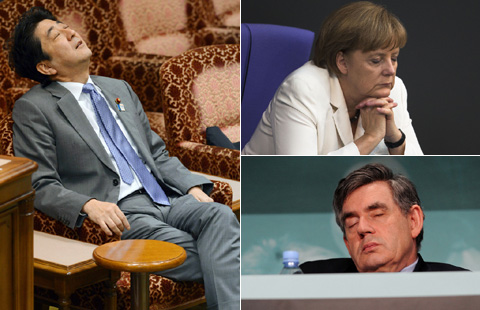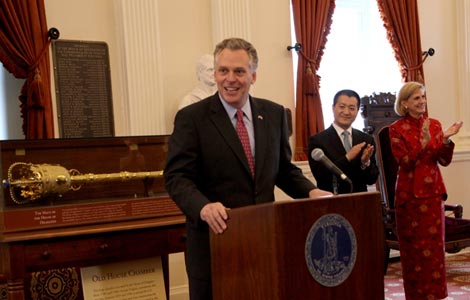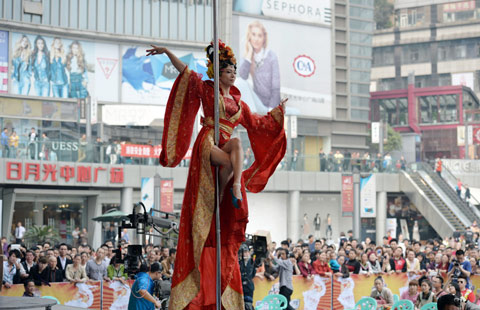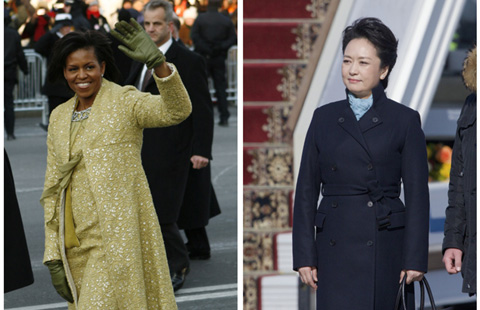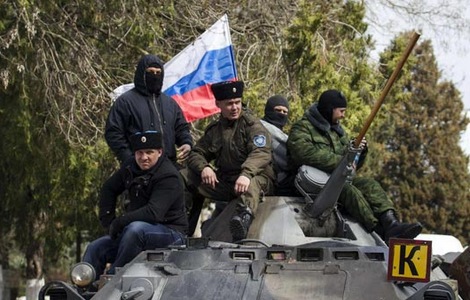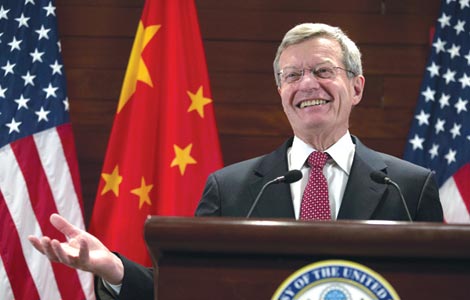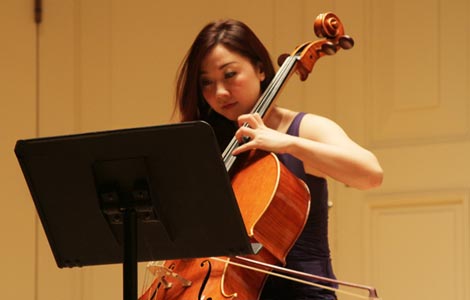Huntsman wants deeper and stronger China ties
Updated: 2014-03-21 03:44
By Chen Weihua in Washington (China Daily USA)
|
||||||||
To Jon Huntsman Jr, the former US ambassador to China, the new major power relationship between China and the United States will be driven by people.
"You can write things on paper, you can come up with big ideas, but ultimately diplomacy in US-China relationship is driven by people," Huntsman told an audience last week at the Atlantic Council during his debut as chairman of the council, a Washington-based think tank.
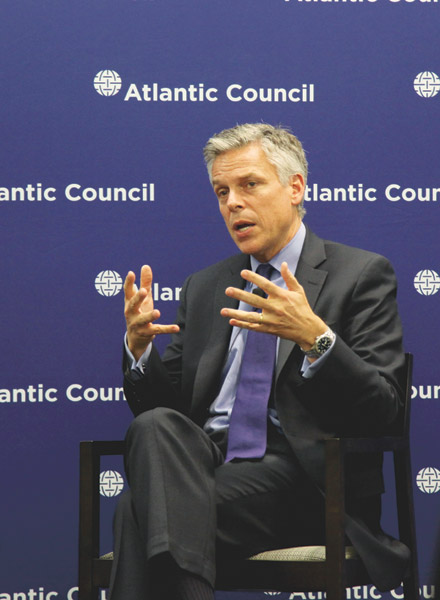 |
|
Former US Ambassador to China Jon Huntsman Jr talks about the US role in the world at the Atlantic Council in Washington DC on March 11. Huntsman became chairman of the Washington-based think tank in Januar. Sun Chenbei/China Daily |
The former two-time Utah governor, who will turn 54 on March 26, believes the two countries have an intertwined relationship that propels them to work despite disagreements from time to time.
"We’ll disagree. We’ll have issues that bring tensions in the relationship and results in the media nasty headlines, but we have to first and foremost understand what brings us together," Huntsman said. "We need glue in the relationship, we need adhesive. That is very difficult to find sometime,"
He has previously compared the relationship to a marriage where divorce is not an option.
Huntsman has been an admirer of the courage and wisdom displayed by President Richard Nixon and Chinese leaders Chairman Mao Zedong and Premier Zhou Enlai when they broke the ice in China-US relations in the early 1970s, seeking common interests despite huge differences.
He also praised the informal summit between Chinese President Xi Jinping and US President Barack Obama held at the Sunnylands estate in Rancho Mirage, California, last June when they vowed to build a new type of major country relationship. However, Huntsman said that’s hardly enough.
"We need about 10 more Sunnylands in order to really understand each other," Huntsman said. Xi and Obama are scheduled to meet next week on the sidelines of the Nuclear Security Summit in The Hague, in the Netherlands.
Huntsman listed a few key issues, such as the Korean peninsula, the East China Sea and Afghanistan where China and the US could and should work together, but he acknowledge that there is no easy solution on the sovereignty issue and that the "gas tank is running empty on trust, and something has to be done to change that dynamic."
He believes that a generation of people needs to understand each other in a deep and nuanced way. Huntsman has said he is proud of having lived and worked overseas and noted that his seven children have also been immersed in different cultures by living and attending schools in Singapore, the Chinese mainland and Taiwan.
Huntsman first visited the Chinese mainland in 1984 when he worked in the White House to prepare President Ronald Reagan for his first trip to China. Before that, he was a Mormon missionary in Taiwan while also learning the Chinese language, culture and history.
A fluent Chinese speaker and an avid observer and practitioner in US-China relations in the past few decades, Huntsman said he has been impressed by the new Chinese leadership, whom he described as "well schooled and pragmatic" and "embarked on reforms that are unprecedented since the 1970s".
"The anti-corruption drive and the economic reform, I keep reading what is playing out and I would say: Xi Jinping is serious about his direction," he said.
The former deputy US Trade Representative believes the experimental Shanghai Free Trade Zone will further liberalize the Chinese economy in services and better prepare China for its next stage of development.
In an interview with Google Chairman Eric Schmidt last year, Huntsman said there are some very capable and smart people on the team making China’s economic policy and on the national security team, citing names as such as Zhou Xiaochuan, who he said is one of the most able central bankers he has ever met.
Huntsman believes China has some of the best long-term strategic thinkers in the world while the US has some of the best short-term tactical thinkers.
The politician, diplomat and businessman has been a sharp critic of the dysfunctional politics in Washington. He withdrew from the Republican presidential nomination race in early 2012 due to what he described as a "toxic" and negative environment.
During a debate on China, Huntsman was made by his opponents to look like the least knowledgeable and relevant among the potential Republican candidates. While Huntsman was giving his vision about how to work with China to make the important bilateral relationship work, his opponents, such as Mitt Romney and Rick Santorum, assailed him and promised what they would do to China on Day 1 if elected president.
He acknowledged that in the US politics opponents often try to come after your strengths and try to make them your weaknesses. "There is a whole lot of political bluster that doesn’t serve the purpose of the American people," said Huntsman, who indicated that he is not going to run again in 2016..
Since early last year, Huntsman has been pushing for a bipartisan caucus to break the congressional legislative gridlock, especially on some of the nation’s hot-button issues.
Huntsman also believes strengthening US foreign policy must begin at home.
"Our priorities… need very much to be based on building the fundamentals that will strengthen this nation. And that, by extension, will allow us to engage with the world in more confident ways," he said.
He believes the US has to improve in practice its principles of liberty, democracy, human rights and a free market. "And we practice those imperfectly. In fact, one of my bigger gripes is that we would be a much more effective world leader if we were to practice what we preach with greater effectiveness," said Huntsman.
He believes his own Republican party should become a little more progressive and open on social issues but conservative on financial and budget issues.
As Utah governor, Huntsman signed bills restricting abortion, but he supported legislation that would have allowed civil unions for same-sex couples, but not same-sex marriage. But in February last year, he expressed his support for same-sex marriage.
Although Huntsman suffered a low approval rating during the 2012 Republican primary, as Utah governor, his approval ran as high as between 80 to 90 percent at times and he won nearly 78 percent of the vote in his 2008 re-election.
Huntsman was a political star at an early age. When he was 32, he was appointed by President George H. W. Bush in 1992 to be the US ambassador to Singapore, making him the youngest US ambassador to serve in more than 100 years.
He became the deputy US Trade Representative in 2001 when China just joined the World Trade Organization. Huntsman resigned his position as US ambassador to China on April 30, 2011, after nearly two years on the job, to return to explore running in the 2012 presidential race.
Huntsman is well liked by many Chinese for his moderate views, and when he and his wife, Mary Kaye, appeared in public with Gracie Mei, whom they adopted in 1999 from Yangzhou in east China’s Jiangsu province, it delighted people.
He had previously told the media what he told Gracie: "You are a very special ambassador. I might be the official ambassador, but you are a very important cultural ambassador because you’re a bridge right across the Pacific Ocean."
Most Viewed
Editor's Picks

|

|

|

|

|

|
Today's Top News
Michelle Obama starts landmark trip
Australia resumes search for MH370
Russia starts sanction against US
Despair voiced in hunt for plane
Experts warn as yuan dips further
China talent top worry for US firms
Search for plane yields frustration, heartache
Quality is king in mobile games' race to the top
US Weekly

|

|
